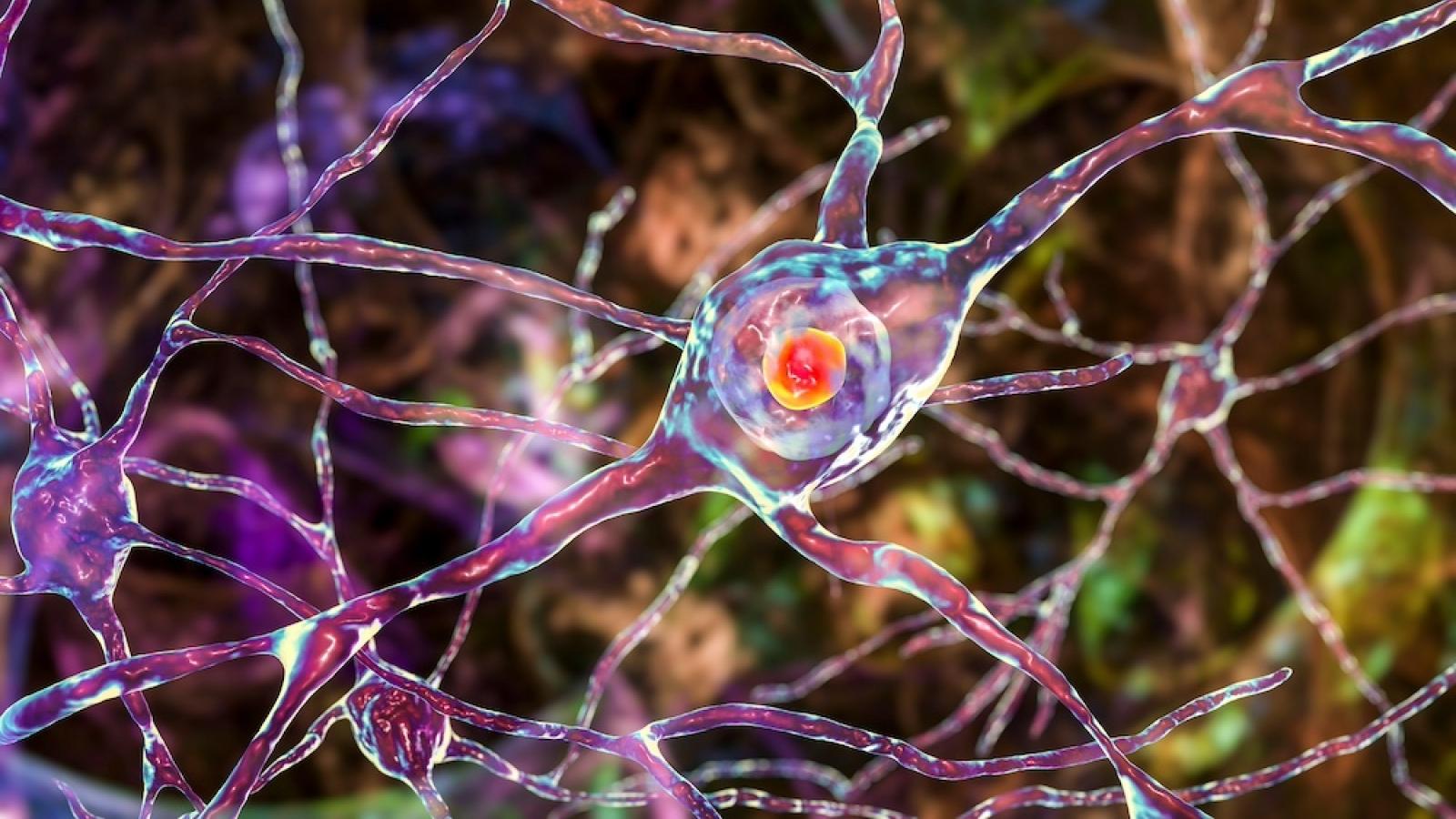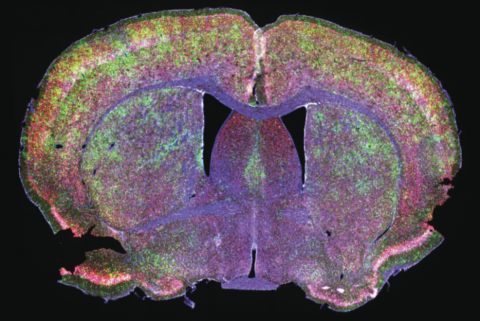Positive results in a global trial for a new Huntington’s disease treatment have been announced today by trial sponsor uniQure and the trial team, including UK DRI Group Leader Prof Sarah Tabrizi (UK DRI at UCL).
In the study, the researchers found that patients receiving the treatment experienced 75% less progression of the disease overall, compared to a matched cohort who did not receive the treatment. This is the first time a drug trial has reported continuing, statistically significant slowing of Huntington’s progression.
Huntington’s disease is a fatal neurodegenerative disease caused by a single genetic mutation. People with an affected parent have a 50% chance of inheriting the mutation, meaning they will develop disease symptoms – typically in mid-adulthood – affecting their movement, thinking and behaviour. About 8,000 people in the UK are currently living with Huntington’s.
The gene that causes Huntington’s disease was discovered in 1993 but until now, there were no effective treatments to prevent or slow the progression of the disease.
The new gene therapy, AMT-130, is the first gene therapy to be tested in people with Huntington’s, and was developed by uniQure, a gene therapy company based in the Netherlands and USA.
uniQure plans to submit an application to the US Food and Drug Administration early next year requesting accelerated approval to market the drug, with applications in the UK and Europe to follow.
l am thrilled that this study of AMT-130 showed statistically significant effects on disease progression at 36 months. These groundbreaking data are the most convincing evidence in the field to date and underscore the disease-modifying effect in Huntington's disease, where an urgent need persists. For patients, AMT-130 has the potential to preserve daily function, keep them in work longer, and meaningfully slow disease progression.
Group Leader
AMT-130 is a gene therapy that permanently introduces new functional DNA into a person’s cells. It consists of particles of a harmless, empty virus, plus a set of instructions encoded in custom-made DNA. The virus is injected directly into a part of the brain called the striatum which is particularly vulnerable in Huntington’s disease.
This is done using a highly complex neurosurgical technique called stereotactic surgery, in which tiny tubes called catheters are guided to the right part of the brain, supported by live MRI images. Once in the brain, the virus particles enter the neurons and release the DNA cargo. All UK participants on the trial had their neurosurgical treatment at the Advanced Neurotherapies Centre at Cardiff University, involving researchers including Prof Liam Gray, Prof Anne Rosser and Dr Tom Massey from the UK DRI at Cardiff.
The AMT-130 DNA becomes a permanent addition to the neuron. It contains a set of instructions for making a molecule of RNA which has been designed to bind to the RNA that is produced when a cell is making the huntingtin protein. When AMT-130 RNA binds to the cell’s own huntingtin RNA, it summons an enzyme to destroy it. As a result, the huntingtin message is deleted and less of the protein is made – permanently.
It is expected that a single dose of AMT-130 would last for a person’s whole life. The team also found that AMT-130 is generally well-tolerated by study participants and has a manageable safety profile.
Prof Siddharthan Chandran, UK DRI Director, said:
"This is incredible news for everyone affected by Huntington's, a cruel and devastating disease. For the first time, we have a drug that slows down Huntington's progression, with people on the treatment showing 75% slower disease progression over the 36-month study.
We'll need to wait for the full peer-reviewed results to come out, but this is promising and gives real hope to families dealing with this disease. The next step is getting this drug into larger, late-stage trials.
I want to give my congratulations to the research team - this comes from decades of dedicated work by Professors Tabrizi, Wild and the whole team, not to mention the pivotal role of the families who have taken part in the research. Sarah, a Group Leader here at the UK Dementia Research Institute, has been instrumental in this breakthrough, and we’re very proud of her progress and contribution to this life-changing research."
Professor Ed Wild, principal investigator of the UCL Huntington’s Disease Centre trial site at UCL and UCLH, said:
“This result changes everything. On the basis of these results it seems likely AMT-130 will be the first licensed treatment to slow Huntington’s disease, which is truly world-changing stuff. If that happens, we need to work hard to make it available to everyone who needs it, while working no less diligently to add more effective treatments to the list.
“Trial results come through in numbers and graphs, but behind each datapoint is an incredible patient who volunteered to undergo major neurosurgery to be treated with the first gene therapy we’ve ever tested in Huntington’s disease. That is an extraordinary act of bravery for the benefit of humanity.
“My patients in the trial are stable over time in a way I’m not used to seeing in Huntington’s disease – and one of them is my only medically-retired Huntington’s disease patient who has been able to go back to work.”
Breakthroughs like this wouldn’t be possible without fundamental insights in into disease mechanisms like those of former UK DRI Group Leader Prof Gillian Bates who works alongside Prof Tabrizi at UCL. The UCL Huntington’s Disease Centre, co-founded by Profs Tabrizi and Wild along with Prof Bates, is the largest Huntington’s clinical group in Europe. Its researchers have been pivotal to the progress of Huntington’s research, including being instrumental in designing and delivering the first huntingtin-lowering drug trial in 2015. Prof Bates co-discovered the gene for Huntington’s in 1993.
More from Prof Tabrizi
Register for our webinar on 29 September: Rethinking neurodegeneration: Could DNA repair hold the key to treating Huntington's disease? where Prof Sarah Tabrizi (UK DRI at UCL) and Prof Gabriel Balmus (UK DRI at Cambridge) will
- Explore what DNA repair is and why these cellular processes are fundamental to understanding Huntington's disease
- Present the latest breakthroughs from the field showing how DNA repair pathways influence disease onset and progression, including exciting insights from recent clinical studies
- Discuss their own collaborative work pioneering novel interventions to stabilise CAG repeat expansions
Links
Source: University College London
Media coverage: BBC News

